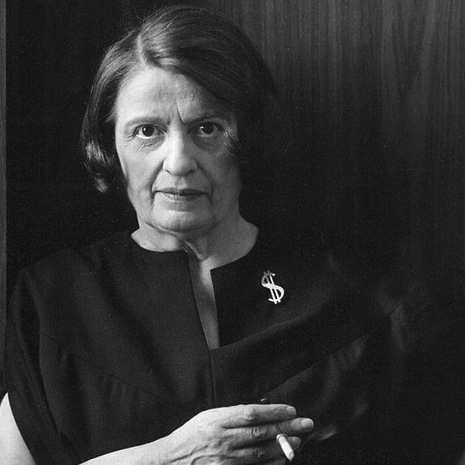Monday, August 27, 2018
Does the Bible Condemn Homosexual Sex? | Dave Armstrong
Dave explain the Biblical condemnations clearly.
Does the Bible Condemn Homosexual Sex? | Dave Armstrong
Pax et bonum
Sunday, August 26, 2018
Don't impose your "don't impose your morality" on me
Even if it hasn’t been addressed at us directly, we’ve all heard and read the classic response when discussing moral issues: Don’t impose your morality on me.
That response is actually meaningless and hypocritical.
First, it is an attempt to impose the speaker’s morality on us.
Second, all laws and all judgments are based on morality and thus, under the moral relativism that underlies the response, they can be considered imposing morality on others. Laws against accepting bribes, pedophilia, theft, discrimination, illegal immigration, trespassing, plagiarism, voter fraud, unethical business practices, assault, and so much more are based at some level on moral principles with which some people might disagree. If we accept this response as valid, the pedophile, the thief, the corrupt public official can all legitimately declare: Don’t impose your morality on me.
Third, this response is often motivated by a desire to avoid honestly addressing the moral position that prompted it. In some cases, the responder is in actuality comfortable with imposing morality as long as it is his or her morality. In others, the responder is trying to redirect the discussion to get away from the sometimes uncomfortable truth that underlies the moral position.
Finally, it often is not a matter of imposing the moral position on others. It is a matter of reminding others of the moral positions they perhaps did not know or understand, or have neglected, or which might make them look at themselves. There is often an underlying fear of honestly dealing with the reality that underlies the moral position, for that might call into question their beliefs and actions.
So when people say, “Don’t impose your morality on me,” often what they are really saying is, “Don’t make me be honest with myself, because I might have to admit I support or do something wrong.”
Now if we were dealing with an issue of someone forcefully imposing religion on others – as, for example, some Christian and Muslim conquerors have done in the past – that would be a different issue. But that is not what we are dealing with here.
Ultimately, “Don’t impose your morality on me” is simply an empty rhetorical cop out.
Pax et bonum
Saturday, August 25, 2018
Fatima Shrine
Yesterday for our anniversary (okay, two days after our anniversary), the Good Looking One and I traveled out to the Fatima Shrine North of Buffalo. We went to Mass, wandered the grounds, had lunch, viewed wildlife, and, of course, visited Mary.
Pax et bonum
Ayn Rand: Pulp in My Laundry
Years ago when I started college Ayn Rand was in the air, like the ever-present lingering incense from dorm rooms up and down the hall.
So because I was like all the other self-conscious rebels, I started reading one of her novels. I got pretty far into it, then, with it in my backpack, had occasion to hitch somewhere (back in the day when hitching was a thing).
I stood on the side of the road, flashing my thumb for each passing car. It was hot, dry, like a desert day, and as each car passed I felt as if I was slowly desiccating. At one point I squatted, imagining myself like Tom Joad trying to go home, and thought about the novel. I began to feel more and more hollow, more and more empty, like a dry bone with the marrow long gone and the hot, dry air inexorably drifting through it.
And I had the feeling that I could give in to the emptiness, my soul evaporating into the nothingness.
And I knew I would be lost
And I almost didn't care.
Then a driver picked me up. He was a friendly fellow. I remember he had a big smile. He laughed like a man who liked to laugh. We engaged in small talk as we drove on, and the desert moment passed.
A couple of months later, I was living in a big city, having taken a leave of absence from college. I was working in a group home, and becoming involved with a girl and her older sister and all their friends. Ayn Rand was floating about there too, lingering in the air like the stale cigarette smoke my big-city acquaintances exhaled as they proclaimed their collective uniqueness.
In my loneliness I tried to be unique too.
I had finished the first Rand novel, and, at the urging of my girlfriend, I began a second. I got part way through it, then, one day, threw in into a bag of laundry I was taking to the group home where I worked, thinking I would read more of it at lunch. In a hurry, I dumped my laundry into the washer, then ran off to do some things with the home's residents.
Later, I opened the washer.
The paperback novel had been reduced to pulp, shreds of it scattered throughout all my clothes.
I had to take the clothes out, item by item, pick out all the pieces of the novel, and rewash the clothes. I still found shreds of the novel in my underwear and socks weeks later.
Feathers in the wind.
A nascent poet, I saw a metaphor in this. And I took it as a sign from God.
I stopped reading Rand uncritically.
I read Tolkien and Lewis and Chesterton instead.
I still read them.
Which explains so much..
Pax et bonum
Friday, August 24, 2018
Wednesday, August 22, 2018
The Voice from the Mother's Womb - Donald Iain MacDonald
While reading a book review about An Tuil: Anthology of Twentieth Century Scottish Gaelic Verse (edited by Ronald Black), in the latest edition of StAR.(Saint Austin Review), I came across mention of a pro-life poem by Donald Iain MacDonald, "The Voice from in the Mother's Womb." Curious, I searched for it online. It was originally written in Gaelic, apparently, but here's an English translation I found in a blog (Cum Lazaro) back in 2013 -
The Voice from the Mother's Womb
Come close and give an ear to me,
All of you who have your health,
Listen to me and take pity on me
For you're about to have me killed;
Here I am, a developed child
Wrapped around in my mother's womb,
And the murderer standing close to me
With the Crown's consent to snuff me out.
He'll get no gallows, fine or prison
And no court will sentence him,
Even if he murdered thousands
He is quit of the country's law;
He will slaughter me tomorrow,
Anyway my mother has asked him to-
Isn't she herself the murderer
Of the very waif that's in her womb?
I have never harmed a creature
Under the sun throughout the world,
All I wanted was to join you there
And grow up and come of age there;
When my mother had conceived me
And I was saying, "She will love me."
But giving pleasure to her flesh
Was what she wanted, not a baby.
I'll never see a summer's day,
Fields alive with calves and stirks,
Nor the primrose of the streamlets,
Or flowers that grow in glen or garden;
I'll not hear in Maytime morning
The sweetstringed choir high in the trees,
I won't run, or jump for joy
With other children as they did themselves.
All my share came into being
When, weak and tender, I was conceived,
And if people did right by each other
No mouth on earth would suffer want;
But too many are amassing wealth,
Eating, drinking, vomiting,
While their brothers lack even the mouthful
To give them strength to reach maturity.
God made me in the usual way-
It was His hope that I would grow,
It wasn't in His mind at all
That I should be superfluous;
He created my eternal soul
Though stained by Adam's living sin,
But the Sacrament of Baptism
Was still going to show me glory.
But alas, my cause of sadness,
My right to it has been denied:
I've now no hope of the Baptism
Ordered for me by the King of the Elements,
But of course He will show me love-
An innocent loveless child
Denied all admittance to the world
And any chance to mature there in time.
Oh won't you take pity, mother,
On me the child that's in your womb,
Listen to me and hear me cry out
As a mother's love is denied me;
Since you so willingly conceived me,
Bring me to the world and bless me,
And my tongue won't seek your torment
When God comes in court to judge you.
And you who're waiting with the knife
To finish off my childhood,
Mind, though I cannot see your face,
I won't forget you, never-
When your soul's being sought from you
And you crying, "God have mercy,"
With a crown about my head
I'll shout, "Send him down to Hell, the fiend!"
"Thou shalt not kill" is what the Lord said,
When He created the commandments;
"You'll give," He said, "all love to me
And as to me, so to your brother."
And you who put the Act together
That murders children by the thousand,
If justice triumphs in the end
I pity you the day you die.
Here it is in Gaelic --
An Guth á Broinn na Màthar
Teannaibh dlùth is thoiribh cluas dhomh,
Sibhs’ a shluagh a tha ’nur slàint’,
Éistibh riu is gabhaibh truas rium
’S mi air thuar mo chur gu bàs leibh;
Tha mi ’n-seo, ’nam leanabh saidhbhir
Paisgte cruinn am broinn mo mhàthar,
’S am murtair ’na sheasnamh dlùth dhomh
’S aont’ a’ Chrùin aige mo smàladh.
Cha téid croich no càin no prìosan,
Cha téid binn a thoirt le cùirt air,
Ged a mharbhadh e na mìltean
Tha e caoiteas lagh na dùthchadh;
Nì e mis’ a mhurt a-màireach,
Dh’iarr mo mhàthair air co-dhiù e-
Saoil nach murtair is’ I fhéin
Don aon dìol-déirc a th’air a giùlan?
Cha do rinn mi cron air creutair
Tha fon ghréin air feadh an t-saoghail,
B’e mo mhiann tighinn còmh’ ruib’ fhéin ann
’S a bhith ’g éirigh suas gu aois ann;
Nuair a ghineadh mi le m’ mhàthair
Bha mi ’g ràdha, ‘Bheir i gaol dhomh.’
Ach se sòlas thoirt dh’a feòil
A bha i’n tòir air, ’s cha b’e maoth-phàist’.
Chan fhaic mise latha samhraidh,
Laoigh is gamhna ruith sna pàircean,
Chan fhaic mi sòbhrach nan alltan,
Flùraichean an glean no’n gàrradh;
Ch chluinn mi air madainn Chéitein
Còisir theudach nan craobh àrda,
Còmh’ri cloinn mar a rinn àsan.
Chaidh mo chuid-sa chur don t-saoghal
Nuair a ghineadh maoth gun chlì mi,
’S nam biodh daoine ceart dha chéile
Cha bhiodh beul fon ghréin is dìth air;
Ach tha cus a’ càrnadh stòrais,
Ag ithe, ’s ag òl, ’s a’dìobhairt,
’S am bràithrean gun fiù an greim
A theireadh sgoinn dhaibh tighinn gu ìre.
Chruthaich Dia mi mar a b’àbhaist –
Se gum fàsainn bha ’na dhòchas,
Cha b’e bha ’na inntinn idir
Gun robh mise gu bhith chòrr ann ;
Chruthaich e m’anam neo-bhàsmhor
Ged bha peacadh Àdhaimh beò air,
Ach bha Sàcramaid a’ Bhaistidh
Dol a thaisbeanadh na glòir dhomh.
Och mo thruaighe, fàth mo dhòlais,
Chaidh mo chòir rithe dhòmhs’ a dhiùltadh:
Chan eil Baisteadh ann dhomh ’n dòchas
Mar a dh’òrdaich Rìgh nan Dùl dhomh,
Ach tha fios gun nochd E bàidh rium-
Neochiontach de phàiste diùmbaidh
Nach fhaigh cead tighinn chun an t-saoghail
’S cothrom tighinn gu aois ri ùin’ ann.
O nach gabhthu truas, a mhàthair,
Riums’, am pàist’ a th’air do ghiùlan,
Éist rium agus cluinn mo ràn
Is gaol na màthar dhomh ga dhiùltadh;
Bhon a ghin thu mi le d’shaor-thoil,
Thoir don t-saoghal mi le d’dhùrachd,
’S cha bhi m’theang’ ag eubhach pian dhut
Nuair thig Dia thoirt breith na cùirt’ ort.
’S thus’ tha feitheamh leis an iarann
Gus mo chrìochnachadh ’nam phàiste,
Cuimhnich, ged nach fhaic mi t’ìomhaigh,
S mi nach dìochuimhnich gu bràch thu-
Nuair bhios t’anam ort ga iarraidh
’S tu ’g eubhach, ‘A Dhia dian bàidh rium,’
Bidh mise agus crùn mu m’cheann
Ag eubhach, ‘Sìos don toll an t-À bharsair!’
Thuirt an Tighearna, ‘Na dian marbhadh,’
Nuair a dhealbhaich E na fàithntean;
Thuirt E, ‘Their thu gaol gu léir dhomh
Agus mar dhut fhéin, dha d’bhràthair.’
’S sibhse rinn an t-Achd a sgrìobhadh
A tha murt nam mìltean pàiste,
Mas e ’n ceartas a their buaidh
Och och mo thruaighe là ur bàis sibh.
Pretty powerful stuff.
Pax et bonum
Santa's Diary
Back in 2005 when I was new to blogging, having created the predecessor to this blog, View from the Choir, I also created a second blog, one that focused on Santa Claus - Santa's Diary.
In it, "Santa" told about some of his life story and adventures - including how he met and courted Mrs. Claus, his pets, dealing with melting ice at the North Pole, putting up with silly cohorts (elves and reindeer), even warring with giants.
I wrote fairly steadily from July of 2005 to July of 2006, then slowed down, and finally wrote only sporadically until 2014. I made one final entry on December 25, 2017.
All told, there are 211 entries. Some are fillers - Hi, I haven't written in a while - but some are decent stories. Some of the stories stretch out over several entries, such as the Mrs. Claus ones, or one about two elves getting married.
I'd like to compile some of the stories, putting them together, and revising them. Material for publication? Who knows.
I don't know if I'll actually do anything with the blog other than that. Maybe I'll post some of those old Santa diary entries on this blog?
Ho! Ho! Ho!
Pax et bonum
Tuesday, August 21, 2018
Sunday, August 19, 2018
Giving up television
I woke up early (even for me) this morning - 3 a.m. Don't know why. The dog was puzzled. Our walk time isn't until 5 a.m. (a holdover wake-up time from the days when I'd have to get in the shower before three daughters and a wife got in there, and then had to drive the daughters to multiple schools and get to the school where I taught on time).
But as I headed out to the living room this morning, a thought suddenly hit me: Stop watching television.
Cold turkey.
Maybe it was the early hour. But it made sense.
Given the dreck on television these days - from the talking heads shouting at each other from one side or the other, to the lame shows promoting inappropriate moral and ethical values or mindless drivel, to the trendy kneeling athletes, etc. - there's little worth wasting my time on.
Indeed, that was often what I was doing. Flipping channels. Watching the same reruns of old shows or the same movies for the 10th or 20th time. It was too easy to get caught up with watching such programs/movies. It was too easy to have it as background (and distracting) noise when I needed to get other things done.
Then there's the shows/movies with inappropriate content that I sometimes catch a glimpse of because I wasn't flipping fast enough.
So I'm quitting.
I'll watch only when there's breaking news about major events, culturally significant broadcasts, bad weather reports for safety or work reasons, and the like.
I can spend my time better reading, writing, practicing guitar, learning new songs, doing household chores, and so on. Indeed, today, because we went to Mass last night, I ran out to the school to check something, went to the hardware store to get some needed supplies, stopped by to visit the wife at the chapel where she volunteers (bringing her some coffee), made tomato sauce out of some of the tomatoes from our garden, mowed the lawn, helped make dinner, and read a book about St. Nicholas. While I was reading or writing, I listened to some good music (Mozart, Matt Maher, and, currently, John Michael Talbot).
This will be better for my mind and my soul.
Pax et bonum
Thursday, August 16, 2018
Teachers more likely to commit sex crimes than priests
The priest sex abuse report in Pennsylvania reveals the extent of the problem - and points to many failures.
Failures by priests. By seminary rectors. By bishops. By parish staffs. By lay people who turned their heads.
Most of these offenses took place years - decades - ago, and some dioceses have improved how they deal with the problem, screen seminarians better, and weed out the offending priests quickly and more publicly. Though, sadly, not all.
One child molested is too many. There is no excuse for what happened.
We hold clergy to higher standard that we do others in society.
Still, as bad as the priest problem is, there are worse situations.
Take the situation with teachers, another profession held to a high standard by the public. Studies show that teachers are MORE LIKELY to commit sexual offenses than priests.
The offenses are less homosexual in nature than are the priests' offenses, but they are still offenses.
There was a major a government study of the issue.
Charol Shakeshaft , who prepared the 2004 report, later said, "[T]hink the Catholic Church has a problem? The physical sexual abuse of students in schools is likely more than 100 times the abuse by priests."
Here's the report address: https://www2.ed.gov/rschstat/research/pubs/misconductreview/report.pdf
Pax et bonum
Ghostbuster Theology: No Private Acts

Sometimes popular culture reveals more about the truth than intellectual and politically correct rationalizations.
Take Ghostbusters II, an amusing (but less successful) 1989 follow-up to the original 1984 movie (rated one of the top comedies of all time).
In G II, there is a river of malevolent pink slime beneath the streets of New York. The Ghostbusters team figures out that the slime is caused by New Yorkers' bad attitudes.
Silly?
Literally, the notion of visible pink slime caused by attitudes is silly. But allegorically and theologically, it makes absolute sense.
Privacy may have a kind of fictional reality thanks to the misguided judgement of some Supreme Court justices, but is does not exist when we are talking about spiritual matters.
All our actions, good or bad, public or private, affect others.
That includes our sins. All of them. Even actions which we do in private ripples forth and touches the souls of others.
As Pope John Paul II noted in his 1984 document Reconciliatio Et Paenitentia
To speak of social sin means in the first place to recognize that, by virtue of human solidarity which is as mysterious and intangible as it is real and concrete, each individual’s sin in some way affects others. This is the other aspect of that solidarity which on the religious level is developed in the profound and magnificent mystery of the communion of saints, thanks to which it has been possible to say that “every soul that rises above itself, raises up the world.” To this law of ascent there unfortunately corresponds the law of descent. Consequently one can speak of a communion of sin, whereby a soul that lowers itself through sin drags down with itself the church and, in some way, the whole world. In other words, there is no sin, not even the most intimate and secret one, the most strictly individual one, that exclusively concerns the person committing it. With greater or lesser violence, with greater or lesser harm, every sin has repercussions on the entire ecclesial body and the whole human family. According to this first meaning of the term, every sin can undoubtedly be considered as social sin.
Again: "... every sin has repercussions on ... the whole human family."
Every time we tell a lie for personal gain
Every time we intentionally view pornography
Every time we gossip
Every time we chose not to try to stop wrongful actions
Every time we cheat on expense accounts or income taxes
Every time we participate in an abortion
Every time we use office equipment for private purposes
Every time we legislate immoral acts, or vote for those who pass such legislation
Every time we swear at another driver
Every time we have sex outside of marriage
Yes, every time we do anything wrong - even the things we try to justify and rationalize through saying it's because of love - we affect others.
We harm others.
We harm them because through even our supposedly private actions we add to the evil in the world - or at least decrease the opportunities for good to flow forth freely from God.
We harm them because all our actions color how we view the world and interact with others.
We need only think of the story of the Fall - even if it is not taken literally.
Adam and Eve committed their offense in private. There was no one else there to witness their action (except, of course, God). Yet it is a basic Christian lesson that their action continues to affect us all.
But to counter the effects of that "private" sin, Jesus dying on the cross - the action of one Person - offered us all the opportunity for salvation.
The movie even gives us a taste of good actions touching others.
When evil seems on the verge of winning, the people of New York, singing together, treating each other well if only for a few moments, spread good to others and weakens the power of evil, allowing the heroes to triumph.
We all need to keep that in mind.
Even as we exercise our fictional "right to privacy."
Because that's true reality - and not a laughing matter.
Pax et bonum
Tuesday, August 14, 2018
Don't let a boycott hurt what is good
The Pennsylvania report on more than 300 priests who committed sexual abuse is discouraging, and disgusting. I am ashamed.
Those involved who are still alive - whether perpetrators, or protectors - need to be called to account and suffer consequences.
One of the consequences that some lay people are talking about imposing on their own is to stop contributing to the Catholic Church.
Money is a way to hit home, yes, but if we take this route we need to be wise about how we do it.
Not all dioceses were involved. Some were, but took action years ago - as my diocese did in 2002. The vast majority of priests across the country were not involved in any way.
Parishes continue to need support, as do many good ministries. A total boycott would hurt them and the good that they do. Youth ministry. Hospital visitation programs. Food pantries. Homeless shelters. Refugee programs. Health care centers in low-income neighborhoods. Centers that help women in troubled pregnancies. And more.
And think of the good and innocent people who could be hurt. The parish priests, parish employees, the ministry employees - the custodians, the secretaries, the choir directors, the soup kitchen directors, the nurses, the shelter staff, the women religious, and so on. And, of course, there are the people who are helped - those who have lost loved ones, the hungry, the sick, the frightened mothers-to-be, the people in the pews and in the neighborhoods.
Don't simply cut them off. If we do boycott, let it be bishops' campaigns on national or diocesan levels, especially of bishops who were involved in any way or who don't address the issue. But then redirect the money to parishes and the local programs that are serving people in so many ways.
And if we know of any abuse - report it. The clergy weren't the only ones who kept quiet for years.
Pax et bonum
Monday, August 13, 2018
Lively music is good, but young people need more
I heard yet another interview in which the people were talking about young people being attracted to other churches because the worship - especially the music - is more lively. It was described a "praise and worship" music. That is, more often than not, that the music is more contemporary.)
On Catholic sites I've seen people recently react against such music, using "praise and worship music" as an insult.
As a musician who plays "praise and worship music," I find these comments against are often narrow minded. At the same time, I accept that the music is not the sole answer.
I think many kinds of music can be acceptable, if done in the proper spirit of worship and if done tastefully and well. I can't imagine hard rock music at Mass, of course, but some folk rock - why not?
I'm all for well-played, lively music.
But while music is important, and can be a draw, it is not what will nurture a deep and mature faith. That's where I see many churches - especially youth ministry - fail. The put on flash and show and rouse feelings - a start - but fail to help the young people grow in their faith. They need to be challenged. They need role models. They need contact with all kinds of prayer - including contemplative.
Pizza parties and ice skating and softball teams are fine, but they need Stations of the Cross, and Benedictions services, and the Rosary.. They need role models. They need to take part in worship with adults. They need to be encouraged to go to daily Mass during school breaks.
There's so much more they need. If they don't get it, then when they hit temptations in their late teens and twenties they will drift away form church.
They may come back when they are older, or are broken, or are lost, but it would be better if they never left.
Pax et bonum
Saturday, August 11, 2018
The books arrived!
Some books I ordered to help with Old English to Neo-Classical literature arrived, and they will prove a big help.
They have texts of some of the works I was thinking of using: "The Wanderer," "The Dream of the Rood," Everyman, Canto 1 of The Faerie Queen, "The Passionate Shepherd to His Love," "To the Virgins to Make Much of Time," "A Hymn to God the Father," sonnets by Sidney and Shakespeare, and more. We'll also be doing tales from Chaucer, Romeo and Juliet, and more.
I'm really starting to gear up.
Now, back to reading Twain's Joan of Arc.
Pax et bonum
Friday, August 10, 2018
Moloch is back
After two millennia, Moloch
is back on the clock.
Smacking his lips, he sneers, "It is good,"
as he lurks on the roof of Planned Parenthood.
Pax et bonum
As the school year nears ...
I've been doing school-related work all summer. Teaching a new course requires reading some of the materials to get ready. Just finished skimming a middle school version of some of the stories from The Canterbury Tales, and am reading Twain's Joan of Arc.
I've also begun to add materials - I found a really nice translation of St. Benedict's rule, for example, and am looking for a good excerpt from Beowulf - and to revise materials I've used before. Just printed student copies of an excerpt from Sundiata.
In preparation, I've also subscribed to the St. Austen Review.
Just a couple of weeks to go!
Pax et bonum
Thursday, August 9, 2018
Violent Abortion Activists Throw Firebombs at Pro-Lifers
Who's more violent?
Violent Abortion Activists Throw Firebombs at Pro-Lifers, Police After Argentina Defeats Abortion Bill: While pro-lifers celebrated, abortion activists in Argentina turned violent Wednesday night after the country's Senate rejected a bill to legalize abortion on d
Andrew Cuomo clerihew
St. Dominic clerihew
St. Dominic
considered using a sword or a stick,
but found that rosary beads
worked quite well for his demon-battling needs.
Pax et bonum
Tuesday, August 7, 2018
Monday, August 6, 2018
Kavanaugh Clerihew
Hiroshima's shadows
August 6, 1945, the atomic bomb blast at Hiroshima left the images of shadows flashed onto walls, stairs, and pavement.
Pax et bonum
Saturday, August 4, 2018
Friday, August 3, 2018
Thursday, August 2, 2018
On the death penalty
Pope Francis today announced a change in the wording of the Catechism of the Catholic Church when it comes to the death penalty.
The old text read (with a highlight added):
“2267. Assuming that the guilty party’s identity and responsibility have been fully determined, the traditional teaching of the Church does not exclude recourse to the death penalty, if this is the only possible way of effectively defending human lives against the unjust aggressor.
“If, however, non-lethal means are sufficient to defend and protect people’s safety from the aggressor, authority will limit itself to such means, as these are more in keeping with the concrete conditions of the common good and more in conformity to the dignity of the human person.
“Today, in fact, as a consequence of the possibilities which the state has for effectively preventing crime, by rendering one who has committed an offense incapable of doing harm – without definitely taking away from him the possibility of redeeming himself – the cases in which the execution of the offender is an absolute necessity ‘are very rare, if not practically nonexistent.‘”
The new wording reads:
“2267. Recourse to the death penalty on the part of legitimate authority, following a fair trial, was long considered an appropriate response to the gravity of certain crimes and an acceptable, albeit extreme, means of safeguarding the common good.
“Today, however, there is an increasing awareness that the dignity of the person is not lost even after the commission of very serious crimes. In addition, a new understanding has emerged of the significance of penal sanctions imposed by the state. Lastly, more effective systems of detention have been developed, which ensure the due protection of citizens but, at the same time, do not definitively deprive the guilty of the possibility of redemption.
“Consequently, the Church teaches, in the light of the Gospel, that “the death penalty is inadmissible because it is an attack on the inviolability and dignity of the person”,[1] and she works with determination for its abolition worldwide”.
Pope St. John Paul II back in the 1990s gave us the first reading as he moved the Church toward disapproval of the death penalty, though he left a window open. Alas, too many used that window to justify general support for the death penalty. Pope Francis has completed what John Paul started, closing that window. It is a development of doctrine, not a change.
I applaud this change. I have opposed the death penalty for decades. I even opposed it for those responsible for the murder of my brother in 1983.
My opposition fits in with my pro-life stance - opposed to abortion, euthanasia, unjust war, the death penalty, unjust economic and social policies, and so on. I believe in respecting the dignity of every human being, so this development is easy for me to accept. John Paul's window allowed for situations where the convicted individual was still a threat to society, but given our prison system such individuals can be contained. (Yes, they can still be a threat to other inmates and prison personnel, but such instances are the exception, not the rule.) Those added years of incarceration give the individual more of a chance to repent.
There are those who oppose this development. Some of them have sincere intellectual problems with it. I get that. I respect that.
But for some it seems more a matter of being part of their conservative - even Republican - view of the world. In the past I have noted some Catholic Democrats, when it comes to an issue like abortion, are more Democrats than Catholic. I think the same holds here when it comes to Catholic Republicans: When it comes to death penalty they seem more Republican than Catholic.
I also fear that some will use this development as yet another cudgel with which to hit Pope Francis.
I am not a fan of such actions. Yes, priest (and bishops) should be subject to penalties when they have sinned and violated the law, but in talking about them we need to show respect.
As St. Francis noted:
Blessed is the servant of God who exhibits confidence in clerics who live uprightly according to the form of the holy Roman Church. And woe to those who despise them: for even though they [the clerics] may be sinners, nevertheless no one ought to judge them, because the Lord Himself reserves to Himself alone the right of judging them. For as the administration with which they are charged, to wit, of the most holy Body and Blood of our Lord Jesus Christ, which they receive and which they alone administer to others—is greater than all others, even so the sin of those who offend against them is greater than any against all the other men in this world.
Pax et bonum
Subscribe to:
Comments (Atom)















